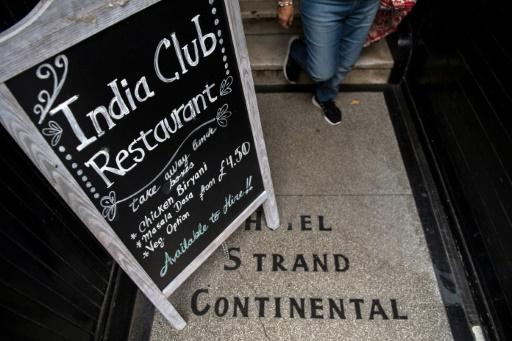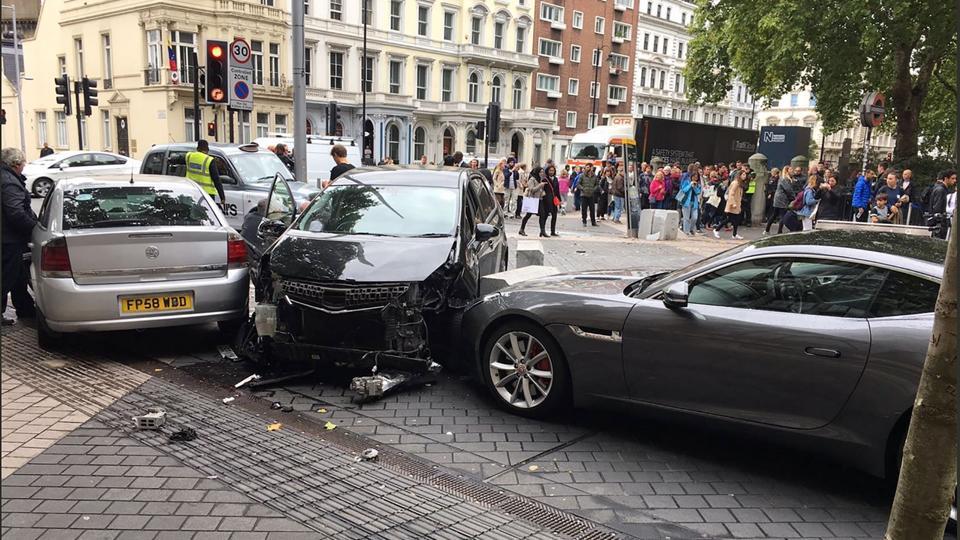
Entertainment
-
 Greece introduces ‘MyCoast’ App to tackle beach violations
In an effort to enforce newly implemented stringent beach regulations, Greece has launched the ‘MyCoast’ app, empowering users to report beach violations effortlessly.03 May 2024Read More...
Greece introduces ‘MyCoast’ App to tackle beach violations
In an effort to enforce newly implemented stringent beach regulations, Greece has launched the ‘MyCoast’ app, empowering users to report beach violations effortlessly.03 May 2024Read More... -
 European Court of Human Rights rejects Kirkorov’s case against Lithuania entry ban
The European Court of Human Rights (ECtHR) has dismissed a complaint filed by Russian pop star Philipp Kirkorov against Lithuania's decision to bar his entry into the country.23 April 2024Read More...
European Court of Human Rights rejects Kirkorov’s case against Lithuania entry ban
The European Court of Human Rights (ECtHR) has dismissed a complaint filed by Russian pop star Philipp Kirkorov against Lithuania's decision to bar his entry into the country.23 April 2024Read More... -
 Risnjak National Park: Croatia's hidden gem wins Europe's top spot
Nestled within Croatia's picturesque Gorski Kotar region, Risnjak National Park emerges as a beacon of untouched beauty, earning recognition as one of Europe's premier destinations sans the23 April 2024Read More...
Risnjak National Park: Croatia's hidden gem wins Europe's top spot
Nestled within Croatia's picturesque Gorski Kotar region, Risnjak National Park emerges as a beacon of untouched beauty, earning recognition as one of Europe's premier destinations sans the23 April 2024Read More... -
 Swiss castles experience record visitor numbers
In 2023, the National Association of Swiss Castles witnessed a historic milestone, welcoming over 1.3 million visitors to its 28 castles. This achievement marks a new record for the organization,23 April 2024Read More...
Swiss castles experience record visitor numbers
In 2023, the National Association of Swiss Castles witnessed a historic milestone, welcoming over 1.3 million visitors to its 28 castles. This achievement marks a new record for the organization,23 April 2024Read More... -
 Underground surge: Belgium grapples with 2,214 illegal gambling websites
Research conducted by gambling analysis firm Yield Sec has unveiled a concerning trend in Belgium's online gambling landscape. According to their findings, a staggering 2,214 illegal gambling14 April 2024Read More...
Underground surge: Belgium grapples with 2,214 illegal gambling websites
Research conducted by gambling analysis firm Yield Sec has unveiled a concerning trend in Belgium's online gambling landscape. According to their findings, a staggering 2,214 illegal gambling14 April 2024Read More... -
 Flanders and Brussels Embrace Slow Art Day, inviting visitors to savor artistic experiences
On April 13th, several museums in Flanders and Brussels will once again host a variety of activities as part of Slow Art Day, an annual tradition aimed at encouraging a deeper12 April 2024Read More...
Flanders and Brussels Embrace Slow Art Day, inviting visitors to savor artistic experiences
On April 13th, several museums in Flanders and Brussels will once again host a variety of activities as part of Slow Art Day, an annual tradition aimed at encouraging a deeper12 April 2024Read More... -
 4 Croatian beaches named Europe’s best
As Croatia gears up for what promises to be its most spectacular summer season yet, the BookRetreats Summer 2024 Report has officially unveiled the top beaches across Europe, catering to10 April 2024Read More...
4 Croatian beaches named Europe’s best
As Croatia gears up for what promises to be its most spectacular summer season yet, the BookRetreats Summer 2024 Report has officially unveiled the top beaches across Europe, catering to10 April 2024Read More...
News
-
 Belgian Princess Elisabeth sets course for Harvard
The Belgian Royal Court has confirmed that Princess Elisabeth, the heir to the throne, will pursue her education at Harvard University in Boston, marking a significant step in herRead More...
Belgian Princess Elisabeth sets course for Harvard
The Belgian Royal Court has confirmed that Princess Elisabeth, the heir to the throne, will pursue her education at Harvard University in Boston, marking a significant step in herRead More... -
 Education unions initiate series of strikes across Flanders
Education unions ACOD Education, COC, and VSOA Education are set to organize demonstrations across five Flemish cities in May as part of a series of strikes. The unions' discontent stemsRead More...
Education unions initiate series of strikes across Flanders
Education unions ACOD Education, COC, and VSOA Education are set to organize demonstrations across five Flemish cities in May as part of a series of strikes. The unions' discontent stemsRead More... -
 Algerian nationals can now be detained prior to deportation, court decides
The highest Dutch court ruled on Monday that Algerian nationals whose asylum requests have been rejected can once again be detained pending their deportation.Read More...
Algerian nationals can now be detained prior to deportation, court decides
The highest Dutch court ruled on Monday that Algerian nationals whose asylum requests have been rejected can once again be detained pending their deportation.Read More... -
 Transfers of asylum seekers to other EU member states increasing
Belgium transferred 1,241 asylum seekers to another European Union member state last year, where they already had a pending procedure. The number of transfers by Belgium has been onRead More...
Transfers of asylum seekers to other EU member states increasing
Belgium transferred 1,241 asylum seekers to another European Union member state last year, where they already had a pending procedure. The number of transfers by Belgium has been onRead More... -
 Polish cheesecake ranked as world's No.1
Polish ‘sernik’ has claimed the top spot on the list of the Top 8 cheesecakes in the world. Cheesecake. Cheesecake. Photo: PAP/Darek Delmanowicz According to TasteAtlas, which curated theRead More...
Polish cheesecake ranked as world's No.1
Polish ‘sernik’ has claimed the top spot on the list of the Top 8 cheesecakes in the world. Cheesecake. Cheesecake. Photo: PAP/Darek Delmanowicz According to TasteAtlas, which curated theRead More... -
 Wealthy family to clear debts for 3,000 Rotterdam families, mirroring Arnhem's initiative
Following Arnhem's announcement to absolve debts for around 50 households in Immerloo, recognized as the most financially distressed area in the Netherlands, a Rotterdam-based family,Read More...
Wealthy family to clear debts for 3,000 Rotterdam families, mirroring Arnhem's initiative
Following Arnhem's announcement to absolve debts for around 50 households in Immerloo, recognized as the most financially distressed area in the Netherlands, a Rotterdam-based family,Read More... -
 'Good to be together': celebrating 20 years of Poland in the EU
Poland's government has initiated a special social and informational campaign titled "Good to Be Together: 20 Years of Poland in the European Union," marking a significant milestone in theRead More...
'Good to be together': celebrating 20 years of Poland in the EU
Poland's government has initiated a special social and informational campaign titled "Good to Be Together: 20 Years of Poland in the European Union," marking a significant milestone in theRead More... -
 ÖBB unveils Summer Train Timetable with construction updates
As summer approaches, Austria's ÖBB gears up for extensive construction activities in the eastern region, leading to adjustments in train schedules along certain routes.Read More...
ÖBB unveils Summer Train Timetable with construction updates
As summer approaches, Austria's ÖBB gears up for extensive construction activities in the eastern region, leading to adjustments in train schedules along certain routes.Read More...

Most Read
- Teen held after US woman killed in London stabbings
- Football: Farhad Moshiri adamant Everton deal above board
- Greece hails new post-bailout chapter but concerns remain
- The Kokorev case caused wide discussion in Brussels
- EU accession talks stir debate in Moldova: insights from Gagauzia's leader, Yevgenia Gutsul
Politics

Guy Verhofstadt, the European Parliament's Brexit coordinator, told British Prime Minister Theresa May on Sunday to confront the Brexiteers in her cabinet and offer greater concessions to the EU.
Verhofstadt told The Mail on Sunday newspaper that May should confront Foreign Secretary Boris Johnson and other Brexit cheerleaders and outline what sort of trade deal she wants, following this week's summit in Brussels.
European Union leaders threw May a lifeline in Brexit talks on Friday, agreeing at the summit to start preparations for the next stage of negotiations on post-Brexit trade and a transition deal.

The India Club, a restaurant and bar on the Strand near London's West End, is trying to use its storied history to block proposals by owners Marston Properties to turn the seven storey building into an upmarket boutique hotel.
"This is a very historic place, we haven't changed anything," Yadgar Marker, the club's current director, told AFP during a recent lunchtime dosa -- an Indian pancake -- and various curry dishes flew out the kitchen.
"Even these tabletops are from the early '50s... It's like a museum," he said.
The club was set up in its current location by Krishna Menon, India's first High Commissioner to Britain, in the early 1950s, and counted Jawaharlal Nehru, the country's inaugural prime minister, among its founding members, Marker said.

Kazuo Ishiguro, the 62-year-old British writer of Japanese origin who was awarded the Nobel Prize for Literature on Thursday, is one of the country's most successful, yet lesser-known, novelists.
A prodigious writer since the early 1980s, he has penned a series of acclaimed novels which have been translated into dozens of foreign languages but has remained more reclusive than some of his contemporary peers.
Ishiguro is perhaps best known for "The Remains of the Day", which secured him the Booker Prize for Fiction in 1989 and was turned into a successful film starring Anthony Hopkins.

Police arrested a man near London’s Natural History Museum on Saturday after a vehicle apparently drove into pedestrians at a busy tourist spot, injuring a number of people.
Witnesses and footage posted on social media suggest the man was pinned down on the ground near the Victoria and Albert Museum.
Other footage and photographs showed a black car nearby with its door open and its bonnet severely damaged.
An AFP reporter said crowds in the area, who include many families, fled screaming in panic. Witnesses reported by some media said they heard a loud bang.

Britain on Friday outlined plans for a near-total ban on trade in antique ivory, bowing to pressure from campaigners who say that poachers are exploiting loopholes in the current regulations.
Announcing the plan, Environment Secretary Michael Gove said the decline in elephant populations fuelled by poaching for their tusks "shames our generation."
"Ivory should never be seen as a commodity for financial gain or a status symbol -- so we want to ban its sale," Gove said in a statement.
"These plans will put the UK front and centre of global efforts to end the insidious trade in ivory."
Britain currently bans sales of raw ivory but allows trade in carved items produced before 1947, and campaigners warn that this legal market has been used as a cover for trade in illegal ivory.

The discovery of a charred body in a London garden reported to be that of a French au-pair has shocked a community of young people seeking adventure overseas who sometimes find themselves lost in a tough spot.
Authorities have yet to identify the victim, though media reports have said it was 21-year-old Sophie Lionnet, from Troyes in northeast France, who was working for French couple Sabrina Kouider, 34, and Oussem Medouni, 40, in Wimbledon, southwest London.
Both were remanded in custody after being charged with murder, and face a plea hearing on December 12.
The body was found last week when neighbours saw thick smoke emanating from the garden and alerted the police.
The gruesome nature of the death provoked a strong reaction from au pairs working in Britain, and among the French community at large.

Monarch Airlines ceased trading Monday, triggering a move by the British government to bring home 110,000 customers stranded abroad.
The British airline and its holidays business entered administration, with KPMG appointed to oversee the financial chaos. "We're sorry to announce that Monarch has suspended flights and holidays," Monarch said on Twitter.
The UK’s Civil Aviation Authority described the situation as “the biggest ever UK airline failure,” adding that “all future holidays and flights provided by these companies have been cancelled and are no longer operating”.

The cost of renovating the British parliament's clock tower, which houses Big Ben, has more than doubled to £61 million (69 million euros, $82 million), authorities said Friday.
Works on the Elizabeth Tower, one of the world's most famous landmarks, are "more complex" than previously thought, the House of Commons and House of Lords commissions announced.
The Big Ben bell, whose famous bongs have rung out across London since 1859, fell silent in August as scaffolding began going up the side of the 96-metre tower.
When it reaches the top, work will begin on the clock, the roof, the interiors and the brick and stonework.

Police stepped up their investigation Monday into the bombing of a packed London Underground train during rush hour after officers made a second arrest in their probe.
The bomb went off on Friday's morning in a crowded carriage and although the device is thought to have malfunctioned, it still wounded 30 people. Britain downgraded on Sunday the nation's terrorism threat from its highest level following the arrest.
It was the country's fifth terror attack in six months, a series that has claimed 35 lives.
Police said earlier Sunday that a 21-year-old man, who has not been identified, was detained late Saturday in Hounslow, on the western rim of the capital.
"The Joint Terrorist Analysis Centre, which reviews the threat level that the UK is under, have decided to lower that level from critical to severe," interior minister Amber Rudd said in a televised statement.
Five years on from the 2012 Olympics, the area of London where they were held has a new train station, a luxury shopping centre and vast green spaces.
A swathe of post-industrial land in Stratford, east London, was given a new life but for local residents, the reality is a lot less perfect.
Penny Bernstock, an expert in housing and regeneration at the University of East London, said there were now "two worlds that co-exist" -- the old, poor, Stratford and a new, wealthy one.
But Hugh Robertson, Britain's sports minister at the time of the Games, told AFP the legacy of 2012 is clear: "The area around Stratford has been completely transformed."
The aim for the London Legacy Development Corporation (LLDC) going into the Games was to regenerate the area -- once deprived and blighted by high unemployment -- by ensuring the infrastructure would have a life after the Olympics.
According to the LLDC, it's job done after billions of pounds were poured into the area.
The 2012 organisers were determined they would leave none of the white elephants that have littered host cities of past Olympics.
The Olympic stadium has been leased to Premier League football club West Ham for the next 99 years -- and hosted the World Athletics Championships in August.
The futuristic Aquatics Centre designed by the late award-winning architect Zaha Hadid was scaled down after the Games and is now a popular facility for locals that can still host international events.

The Olympic Village, where athletes stayed during the competition, has been turned into thousands of flats.
"This is heaven! Look around you; look at this garden," Richard, a 29-year-old local resident, told AFP before making his way into the Olympic Park for his daily jog.
The LLDC plans for 10,000 new homes to be built in the area by 2030.
London seems to have avoided the fate endured by Athens -- where the Games are synonymous with financial ruin -- and Rio, where just over a year since the Olympics took place, the feelgood factor has vanished amid scandal and rotting venues.
In the Greek capital, little of the infrastructure has been reused, while in Rio, the Olympic Park is closed, the swimming pool has been drained and the Village, which was meant to be transformed into high-end housing, is still awaiting residents.
- 'Affordable for whom?' -
Many Stratford locals though feel they have not benefited from the huge sums spent on the Olympics.


















